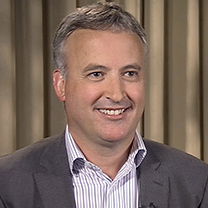
on Posted on Reading Time: 5 minutes
In September 2021, MEF launched the new LSO API Onboarding & Interop Test (OIT) Service. What is the interest in and traction for the service from the market?
Michael Kearns (MK): We already have a number of subscribers using the service, the majority are providers as expected.
Providers are mostly implementing their sell-side solution based on the LSO Billie SDK release in response to a buyer (customer) request. The service is also being used by a buyer to test its upgrade to Billie. We are already seeing greatly improved testing and interop cycle times. We expect more providers who plan to upgrade their existing implementations to subscribe in the coming months.
Vendors who subscribe are initially focused on testing their LSO Sonata API implementations for their own LSO solution, driven by their customer requirements. We’re pleased with the interest and inquiries and expect to have 15-20 subscribers using the service in 2022.
Can you give an example of the practical benefits of the MEF OIT service?
Konrad Herba (KH): Providers and vendors face a complex challenge when implementing MEF LSO Sonata specs (MEF standard domain) and aligning their implementation with those of their partners (practical domain).
The first challenge they face is achieving MEF LSO Sonata standard compliance for their implementation. Here MEF OIT offers very comprehensive support.
There are hundreds of specific LSO Sonata validations built into MEF OIT. Using these validations, the OIT service provides rich, guided support for designing provider-specific tests and emulations. This process is incremental and iterative, providing very meaningful feedback to pinpoint problems and allows for quick resolution. There is no need for the end user to have detailed knowledge of the MEF specifications or to worry about whether they have interpreted them correctly. The risk of introducing “human errors” in their LSO Sonata implementation is mitigated.
The MEF OIT Default Test Suite provides practical examples for the most common test cases and is compliant with MEF W92.1 “LSO Cantata/Sonata Test Requirements.” It is a great reference for subscribers creating their own tests and emulations. The MEF OIT service simplifies and streamlines the whole job of implementing and testing LSO Sonata APIs.
Is testing compliance of your implementation against the MEF LSO Sonata standard enough to prove plug-and-play partner interoperability?
KH: Not necessarily. In real implementations there may be must-have requirements specific to each provider beyond what is specified in the LSO Sonata standard definitions.
First, partner interoperability starts with aligning on product specifications and associated offerings. This results in a particular product specification/schema being agreed upon between the partners. Second, “API usage patterns” need to be agreed upon. To further explain, a common buy-sell pattern needs to be agreed upon with each partner (and can differ per partner) and spans multiple APIs to realize the end-to-end process of: address validation, site inquiry, product serviceability, pre-sales quote, best and final offer (BAFO) quote, and order. For example, optional APIs like Address Validation or Site Query may be must-haves for a specific partner—often partner interoperability will not pass without support for them.
Also, additional concepts may be applied by providers and passed to partners as requirements. For example, a provider may use the notes field to communicate the type of quote being requested (e.g., pre-sales or BAFO) or to communicate fulfilment details in order completion. In these cases, a note becomes a “meaningful attribute” which must be interpreted and properly handled.
MEF OIT can be used to emulate these per-partner specific pairwise configurations, and these emulations can be used by partners to perform interoperability testing in insolation. It also offers a way to capture and document them. It’s proved invaluable for partner onboarding and interop testing, what previously took many months now takes just days/weeks.
Amartus is also an LSO Solution Provider, offering solutions for implementing LSO Sonata. What are you seeing in the market regarding LSO Sonata implementation? What are the needs and challenges with buyers and sellers?
MK: We are seeing a significant increase in adoption driven by several factors: 1. Some buyers now expect suppliers to adopt the standard; 2. There is also a significant increase in adoption activity/interest among top-tier providers, the leaders and influencers in their respective markets; and 3. The MEF LSO APIs are now mature, and a robust set of tools and resources are available to help support their evaluation and implementation, including the LSO Marketplace, LSO Partners Directory, LSO OIT Service, LSO Sonata Certification Program, and more.
The availability of and interest in these supports and tools are real signs that the ecosystem has moved from early to mainstream adoption. Early adopters mostly undertook to implement the APIs by themselves and had to be deeply involved in standards development, which required a significant amount of time and cost on their behalf. As adoption becomes mainstream, most providers do not have the expertise, time, or budget to develop the APIs themselves. Their goal is an implementation that meet the expectations of their partners.
This is where LSO Solution Providers like Amartus come in. We offer solutions (like nBrace) to fast-track providers’ LSO Sonata API implementations. The benefits of working with LSO solution providers are: 1. Eliminate the need for your team to become experts in the standard. 2. Providers can begin negotiating with partners over LSO Sonata APIs in the shortest time possible at a fraction of the cost of in-house development.
What do you see as the future for LSO APIs—types of users, functionality, and products/services?
MK: The current use of LSO Sonata is mainly for international wholesale trading of Carrier Ethernet Access E-line services, covering Pre-order and Ordering processes. This usage will extend to Product Catalogue and Billing and Invoicing when the standards are ready.
Over the next 12 months we expect to see expanded use for domestic wholesale. We also expect to see use for trading of Internet Access services driven by the increasing demand for SD-WAN underlay services.
There is growing interest in adding operational API support via the LSO Sonata Trouble Ticketing API and the LSO Interlude Service Provisioning/Control, Service OAM and Function Testing APIs.
Another area of interest is adoption of the LSO Cantata (business APIs) by enterprises. This can be large enterprises who want to integrate APIs into their own service management portals or solution/application providers who offer services to enterprise customers where wholesale connectivity can be bundled in.
KH: The great thing about the LSO APIs is that they are product and service agnostic. Providers can use them to trade MEF standardized and non-standard (e.g., IoT) products and services with partners.
As co-chair of the LSO Committee, can you highlight what’s ahead for the committee in 2022?
MK: Celine is the latest LSO SDK, and was released in mid-January. It builds on the previous mature Billie release and includes fixes and comments for existing Pre-order and Order APIs, adds a Trouble Ticketing API and developer guide, adds the LSO Service Provisioning API, the LSO API Security Profiles, and lastly, provides updates for the Carrier Ethernet Access E-Line and Subscriber Ethernet Product Schemas. It also includes a new version of the LSO Cantata/Sonata Test Requirements.
In terms of what’s ahead, the next SDK release is Dolly, planned for June. While it’s too early to say exactly what will be included, likely candidates are additional business function related APIs, more operational function API support, and MEF standardized Internet Access products.
Release priorities are driven by members. We welcome MEF members to join our committee meetings and our LSO Partner Conference to be held on 4 May at the MEF Q2 Members Meeting in Paris.

